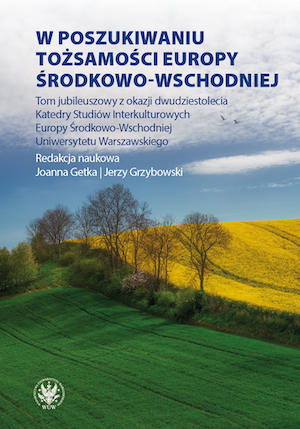Naród, tożsamość, pieniądze
Nation, identity, money
Motives of actors of economic nationalism in the Ostrava-Karviná Coal Basin during the First Czechoslovak Republic
Author(s): Grzegorz Gąsior
Subject(s): Cultural history, Studies of Literature, Theory of Literature
Published by: Wydawnictwa Uniwersytetu Warszawskiego
Keywords: economic nationalism; Czechoslovakia; Ostrava-Karviná Coal Basin; national minorities; industry
Summary/Abstract: The Ostrava-Karviná Coal Basin was a crossroads of Czech, Polish and German cultures. In the times of Austria-Hungary, local industrial enterprises were owned by Germans and most of the leading positions were filled by German specialists. Since the 19th century, Czech engineers and technical staff had been pouring into the region. The working class in the eastern part of the region was mostly Polish, in the western part – mostly Czech. After the fall of Austria-Hungary in the years 1918–1920, Czechoslovakia obtained the whole territory of the coal basin. Among Czech engineers, clerks, technical staff and nationalist organizations there was a strong mood against German domination in the industry. They perceived it as a historical remnant of Habsburg dynasty’s rule and demanded to recruit Czech specialists only and to strengthen the influence of Czechs. The state administration supported these efforts, in spite of them being at variance with the protection of ethnic minorities guaranteed by law. Another opportunity to strengthen Czech influence was given during so-called nostrification of foreign (mostly Austrian) companies. Economic nationalism, however, was often used to the benefit of particular interests. Poles were mostly workers or peasants. The strengthening of Czech positions in the industry resulted in efforts to assimilate the Polish workers by using economic pressure to force them to join Czech organizations and send their children to Czech schools.
Book: W poszukiwaniu tożsamości Europy Środkowo-Wschodniej
- Page Range: 86-109
- Page Count: 24
- Publication Year: 2022
- Language: Polish
- Content File-PDF

